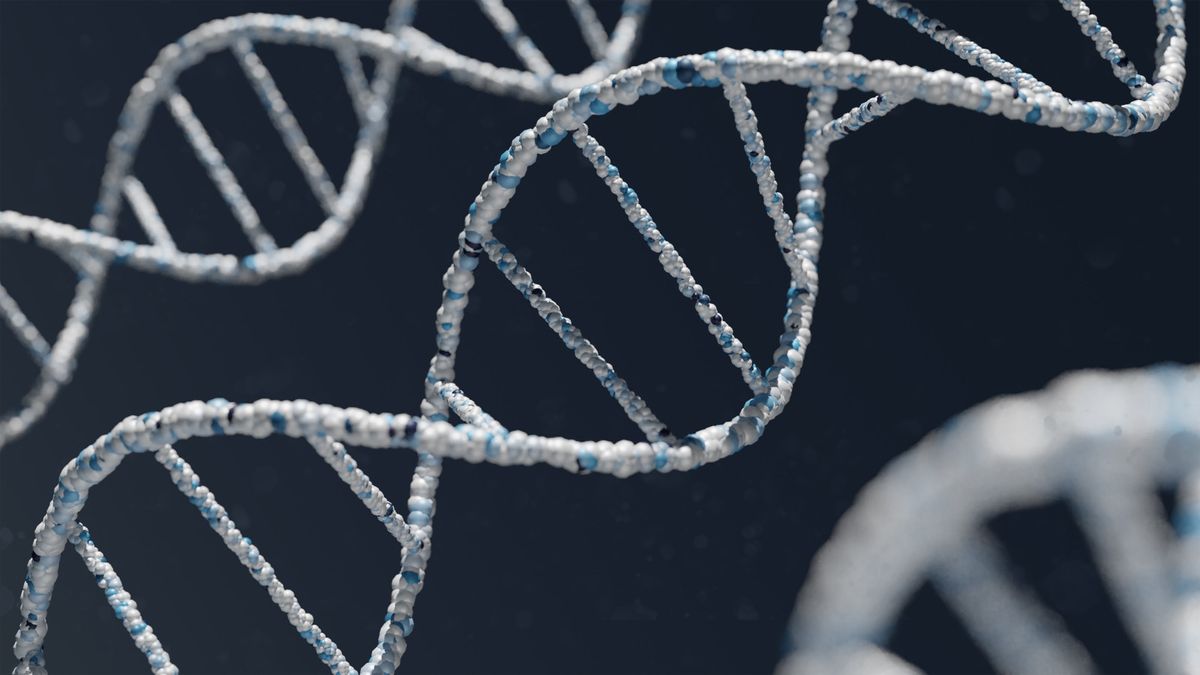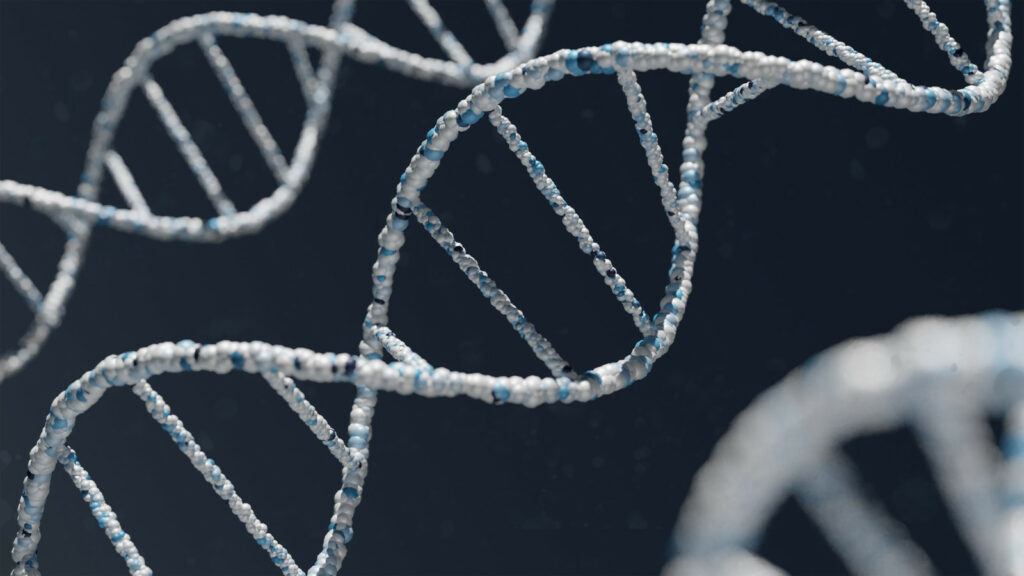Genetic Testing: Promise or Pitfall?

At-home genetic testing is all the rage, but should you change your life based on the results?

“You have to know the past to understand the present,” Carl Sagan famously said. Makes you wonder what the astrophysicist would think about today’s obsession with knowing where we came from — not just in astrophysics terms, or finding our relatives going back a few generations, but what lurks in our personal DNA that might predict health problems in the future?
Is it a generation of fourth and fifth generation Americans searching for their lost roots? A population obsessed with certainty and the need to predict the future? The relentless technological progression that pocket-sizes everything (think Univac vs the iPhone), increasing our ability to do practically anything without getting off the living room couch?
Bypassing the Doctor
One of the biggest do-it-yourself testing draws today is Direct-to-Consumer (DTC) genetic testing, which addresses both the current fascination with family history and the desire for clear-cut information predicting future health. These tests are essentially an exercise in genomics: the study of genes, their alteration, and the likelihood that such alterations would be passed onto the next generations, theoretically predicting your disposition for hereditary or acquired diseases or conditions such as cancer or cystic fibrosis.
It’s already a big business. Industry statistics show the world’s consumer genetic testing market was worth $70 million in 2015 and surpassed $1 billion in 2019. This is expected to rise by more than 12 per cent from now until 2028. So there’s a good chance that you will have heard of at least some of the companies in this list of the most popular DTC genetic testing companies, recently ranked by PC Magazine as the “Best” of 2022:
23andMe: Best for Exploring DNA and Health Data
AncestryDNA: Best for Matching With Ancestors
Living DNA: Best for Finding Geographic Roots
HomeDNA: Best for Tracing Migration Patterns
MyHeritage DNA: Best for Building Family Trees
“Best,” and big business, but still in the minor leagues scientifically. DTC testing kits are a bit like having 120 pieces of a 20,000-piece jigsaw puzzle in place while attempting to predict an overall outcome.
What, Exactly, Is Tested?
Dr. David Chan, an oncologist in Redondo Beach, CA, writing in Quora last year explains that the relatively inexpensive DTC tests (averaging less $200 as of this writing) “are woefully incomplete because these are tests of specific genotypes (a process called microarray testing, which looks in detail at a person’s chromosomes to see what sections might present problems). You get some information but far from a complete picture.”
Gene sequencing gives a much more complete picture. Sequence tests (conducted by companies such as CancerNext or MyRisk) cost about $4,000 and can be covered by insurance and Medicare in the US.
Ancestry Health entered this field two years ago with a gene sequencing kit retailing for $179, powered by technology that claims to read parts of the genome (an organism’s complete set of DNA) that a microarray cannot, therefore claiming to offer a more complete diagnostic picture.
But DTC DNA kits are just not able yet to test the entire genome, even with more sophisticated technology. DTC tests look at only those parts that they consider having relevance to either ancestral markers or health markers.
As an example, let’s look at genetic testing for inherited breast cancer risk, with much focus on the BRCA genome, the human protein that can detect the likelihood of developing breast cancer. DTC tests look a just three BRCA genotypes out of the more than 1,000 genotypes of BRCA that link to a higher breast cancer risk; they don’t claim to test any of the other 8–10 genes with demonstrated linkage to breast cancer.
What If?
Compared to the results a clinically accredited lab, DTC test accuracy is pretty low. So, what if instead of providing some fun insight into your heritage, your test tells you you’re at risk from a terrible disease? Or creates false positive or false negative results?
It’s a safe bet many people in this situation are off to the doctor for more (expensive) tests and analysis!
One reason scientists and industry leaders blame for inaccuracies is insufficient information due to the lack of a comprehensive genetic database in the US which, they believe, puts the US behind countries like China and the UK in the ability to understand the human genome.
23andMe Holding Company CEO Anne Wojcicki, in an interview on Bloomberg Television in August, claimed, “The UK has already leap-frogged us” with their genetic database despite the recently launched program to decode diverse American genomes.
The UK has a leg up on databases as the country’s National Health Service already has a nationwide health data base overall. This may raise data privacy concerns within the private health care community in the US, but it also provides useful information that can assist in patient diagnostics and treatment. And the NHS has had its share of patients worried over DTC test results.
In an interview recently with the British health media, Sara Levene, a genetic counselor who is also chair of the Association of Genetic Nurses and Counsellors (AGNC) said, “Sometimes people regret having had the test, and worry every time they forget something that it’s because they’re developing dementia. There are many people with the genetic risk factor who never develop dementia (and others who do not have the genetic risk factor who do [go on to] develop it). NHS care and lifestyle recommendations wouldn’t change based on the results of the test, so it’s important to think through whether having the test would help you or not.”
Holding Companies Accountable
Levene believes DTC testing companies should be responsible for the results they provide to customers – biological results as well and emotional – by having genetic counselors available to their consumers, even one day a week.
“You’ve got to have the access for when it’s needed,” she continued. “We have to actually hold the companies accountable because if they want to offer the DNA service and sell it commercially as a benefit to someone’s life, that is not a full service unless they can provide support for the patients who are using it.”
Why Choose a DTC Test?
For many people, the decision to take a DTC test is a responsible way to take an active role in managing their own health by trying to obtain clear cut information about their future health. Some are just curious and believe they won’t mind if they discover the father they grew up with isn’t their biological father, or their grandmother was married to an Italian mobster from Chicago (real stories gleaned from Quora!). Others will mind or not want to know – considerations to take into account if you’re thinking of wrapping up a DTC test as a gift. It can backfire.
And How?
On choosing tests? The UK’s Levene advises you to look for signs of scientific credibility, such as a company link to published scientific literature about the high quality of its testing. “If there doesn’t seem to be any scientific data, she says, that’s a red flag.”
And if you’re worried about missing a danger sign or two because you haven’t had the test, ask your doctor what he or she thinks. Chances are, they’ll advise you to start by creating a family medical history…and doing so can connect you to members of your family you may not have seen in a while who can in turn provide information about your ancestry. Data collection, the old-fashioned way.
As to making a gift of a DTC DNA test, Levene says, “I’d get them a bottle of wine instead.”
(Editor’s note: CECNA does not provide medical advice. Please consult a medical professional for health concerns.)
